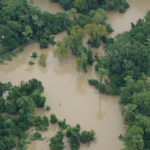
Having the right insurance is essential when owning and operating commercial property. If a fire, hurricane, or major disaster damages a property, business owners should be able to rest easy knowing they have the proper coverage to fully recover. Unfortunately, an insurance provider can easily deny coverage on the grounds of preexisting damage by alleging the loss claimed was already present at the property before the event. Because not all instances of property damage are covered under standard commercial property policies, insureds must understand what a preexisting damage exclusion is and how insurers attempt to use it as a tool to deny coverage for valid causes of covered commercial property damage.
Preexisting Damage Exclusion
Business owners must consider the myriad of ways their property can become damaged during its time in operation. Although commercial property insurance policies are designed to provide owners with a means to protect their livelihood, they are not catchall contracts that automatically cover every single instance of damage. Commercial property policies typically contain a variety of different coverage exclusions for certain specific causes of damage – including preexisting damage.
Instances of preexisting damage to a business are commonly excluded from coverage under a commercial property policy. As with both commercial and residential properties, signs of wear and tear and damage are inevitable. Insurance companies know this and understand the properties they insure are aged. So, when a loss happens to one of these properties, every single item is not automatically excluded because of wear and tear or preexisting damage. Rather, these exclusions work to eliminate the liability of the insurance carrier for damage already present at the time the insurance policy was purchased. For example, if a business owner bought a commercial property policy after the property sustained roof damage due to a hailstorm, the insurance company would deny a related hailstorm claim as the damage already existed before the policy went into effect.
Navigating the line between normal wear and tear and actual damage from a covered event can be tricky, and insurance companies will often take advantage of this clause to avoid paying claims. When a commercial property damage claim is filed, insurers will use specialists like adjusters to review and investigate the damage in question to determine the cause. Because of this, owners should fully understand their policies and know what to expect from their insurance providers to ensure a claim is not denied on the grounds the damage was caused by a preexisting condition.
What Preexisting Damage to a Commercial Property Can Include
When reviewing what preexisting damage to a commercial property often looks like, it’s important to note that insurance companies often utilize the preexisting damage exclusion to deny claims for two main reasons. First, insurance companies are not required to cover losses that can be attributed to preexisting damage to the property. Second, insurers know that litigating claims denied under a preexisting damage exclusion is fact-intensive. In other words, insurance companies will use all of the information collected during the application and underwriting processes to the detriment of the policyholder.
Most often, preexisting damage to a commercial property includes:
- Damage that predates the purchase of an insurance policy;
- Failure to properly maintain the property before the date of loss; and
- Wear and tear over an extended period.
How to Avoid a Property Insurance Claim Denial Due to Preexisting Damage
Policyholders must take certain steps to ensure a commercial property damage claim will not be denied due to the presence of preexisting damage, including:
Reviewing the Current Policy
Many business owners may be unaware of their policy’s coverage limitations. Not only that, but insurance policy language is often purposefully complex and difficult to decipher, giving the insurance company an upper hand over the insured. By thoroughly reviewing the policy each year with a professional like an insurance coverage attorney, policyholders will better understand where they may have gaps in coverage.
Maintaining Records and Documenting the Property Pre-Loss
While taking photos and videos after damage occurs is recommended as evidence in support of an insurance claim, it’s also important to take and maintain photos and videos from the time the property is purchased. Be sure to note the date and time when the photos and videos were taken. Policyholders should also maintain any other records about the property, its state at the time of purchase, as well as any recorded instances of damage that have occurred while it has been occupied by the policyholder. This can also include any records of improvements made at the property over the years. This is especially important, as properties must be well-maintained before a loss occurs. This will make it less likely that an insurance company can deny a claim because of preexisting damage.
Scheduling a Property Inspection
Although it’s important to inspect a commercial property each year to ensure it is in good working condition, scheduling an inspection with a licensed specialist or general contractor can help provide insight into any problem areas the property may have that the owner is unaware of. This evidence can also be used to prove the property was not previously damaged in the event of a future damage claim.
Consulting with Legal Counsel
Unfortunately, insurance providers can often be notorious for rejecting valid claims at the expense of policyholders. Ensuring commercial property owners have skilled legal representation from an insurance coverage attorney is essential in these cases. These professionals can help policyholders complete a thorough review of their policies and ensure valid claims are honored.
Common Commercial Property Insurance Exclusions
Other instances of damage to a business’s property that are most commonly excluded from coverage under a commercial property insurance policy include:
Damage to Commercial Vehicles
While company vehicles are considered to be the property of the insured business, they are specifically not covered under most commercial property insurance policies. This is because insuring a brick-and-mortar business and a company vehicle are very different. To ensure the vehicles a company uses to operate its business are insured, a separate commercial vehicle policy will need to be purchased.
Earthquake and Flood Damage
Damage caused by floods and earthquakes is commonly excluded from coverage under a commercial property policy. As with commercial vehicles, the only way to protect your company from these risks is to secure a specialized commercial flood or earthquake policy for the business. If a business is located in a region that is prone to flooding or an area that has frequent instances of earthquakes, it should obtain coverage for these events early on. Both earthquake and flood policies can be purchased at the same time as riders or endorsements to the company’s commercial property insurance.
Excluded Property
Certain specific types of property are commonly excluded under commercial property insurance, including:
- Any money, security, accounts, and / or bills the business has
- Land, piers, docks, and wharfs
- Vehicles, aircrafts, and watercrafts
- Animals other than stock
- Crops, hay, or grain located outside
- Building foundations
- Walkways, roads, and other paved surfaces around the property
- Electronic data
- The cost of restoring information on valuable records
Smoke and Some Fire Damage
Despite being detailed in defining the terms and conditions under a policy, an insurance company’s definition of “fire” can be ambiguous. For instance, a commercial property policy may only cover certain types of fire-related damage, such as a wildfire or forest fire that spreads to your business. However, if a restaurant owner has a faulty oven that has not been well-maintained and causes a fire, the resulting damage will generally not be covered.
Smoke damage from a fire is also rarely covered by commercial property insurance, particularly for businesses that operate in agricultural or industrial sectors. However, because each insurance policy is unique, business owners should review their coverage with an experienced insurance claims attorney to determine if additional coverage is needed and can be purchased.
Commercial Property Insurance Claim Attorneys
When purchasing a property of any type, owners should have it thoroughly inspected to ensure all instances of preexisting damage are located and noted. Doing this and having comprehensive commercial property insurance coverage can help ensure the premises is protected, should it be damaged by a covered event. Unfortunately, despite taking all the precautions necessary, insurers have become notorious for wrongfully denying or delaying valid claims for their benefit.
At Raizner Slania, our seasoned team of commercial property insurance claim attorneys understand the variety of tactics insurers frequently utilize to thwart the claims system to the detriment of their policyholders. If your business has suffered property damage due to an event that should be covered under your commercial property policy and your insurance provider has wrongly denied, delayed, or underpaid on coverage, we can help.


